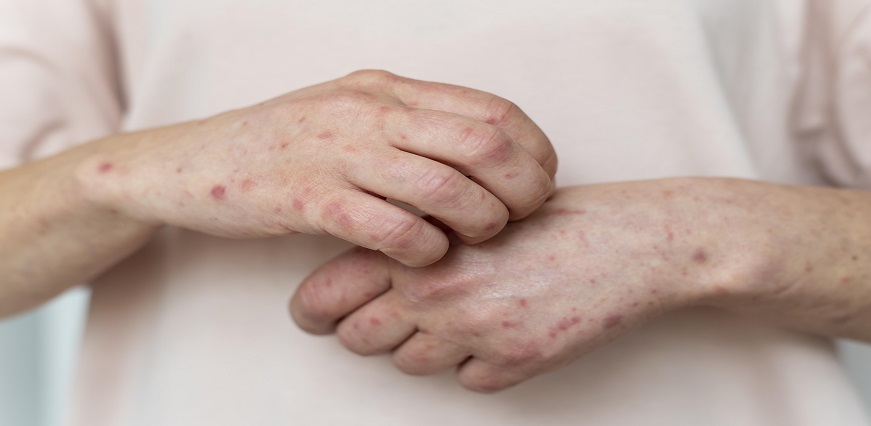

Max Lab > Lab Test in Muzaffar Nagar > Lab Test in Laddhawala > MRD-ALL Panel
₹ 12500
10% OFF for Senior Citizens | USE CODE SS10 *
@3x.png) Description
Description
Minimal residual disease is defined as the small number of cancer cells that remain in the body after cancer treatment. Measurable or minimal residual disease (MRD) testing is used to observe whether the cancer treatment is working fine or not. It also helps to plan further treatment plans. MRD test in Laddhawala, Muzaffar Nagaring is mainly used in blood cancers, such as leukaemia, lymphoma, and myeloma. MRD test in Laddhawala, Muzaffar Nagar for acute leukaemia is the strongest independent prognostic predictor. Also, for the treatment of adult and paediatric acute lymphocytic leukaemia (ALL), MRD test in Laddhawala, Muzaffar Nagaring is a part of routine test in Laddhawala, Muzaffar Nagaring. Additionally, in relapsed settings of multiple myeloma, MRD test in Laddhawala, Muzaffar Nagaring is a predictor of survival outcomes. The standard procedure of the MRD test in Laddhawala, Muzaffar Nagar is to assess the number of myeloma cells in a bone marrow sample using techniques like genetic sequence analysis, next-generation sequencing and flow cytometry: next-generation flow.
MRD test in Laddhawala, Muzaffar Nagar is done to find any remaining cancer cells that may be left in small numbers. MRD lab test in Laddhawala, Muzaffar Nagars use sensitive methods which can find even a single cancer cell in 1 million healthy cells. MRD blood test in Laddhawala, Muzaffar Nagars include methods such as polymerase chain reaction (PCR), multiparametric flow cytometry, and next-generation sequencing (NGS). Such test in Laddhawala, Muzaffar Nagars are used after initial treatments for blood cancers like multiple myeloma. It helps to observe how well a person’s body is responding to treatment, if the person is in full remission, and to check if remission is stable or not or if there is any recurrence.
MRD test in Laddhawala, Muzaffar Nagar results can affect a person’s treatment by helping in making treatment decisions and improving patient outcomes as it helps in:
@3x.png) Description
Description
Minimal residual disease is defined as the small number of cancer cells that remain in the body after cancer treatment. Measurable or minimal residual disease (MRD) testing is used to observe whether the cancer treatment is working fine or not. It also helps to plan further treatment plans. MRD test in Laddhawala, Muzaffar Nagaring is mainly used in blood cancers, such as leukaemia, lymphoma, and myeloma. MRD test in Laddhawala, Muzaffar Nagar for acute leukaemia is the strongest independent prognostic predictor. Also, for the treatment of adult and paediatric acute lymphocytic leukaemia (ALL), MRD test in Laddhawala, Muzaffar Nagaring is a part of routine test in Laddhawala, Muzaffar Nagaring. Additionally, in relapsed settings of multiple myeloma, MRD test in Laddhawala, Muzaffar Nagaring is a predictor of survival outcomes. The standard procedure of the MRD test in Laddhawala, Muzaffar Nagar is to assess the number of myeloma cells in a bone marrow sample using techniques like genetic sequence analysis, next-generation sequencing and flow cytometry: next-generation flow.
MRD test in Laddhawala, Muzaffar Nagar is done to find any remaining cancer cells that may be left in small numbers. MRD lab test in Laddhawala, Muzaffar Nagars use sensitive methods which can find even a single cancer cell in 1 million healthy cells. MRD blood test in Laddhawala, Muzaffar Nagars include methods such as polymerase chain reaction (PCR), multiparametric flow cytometry, and next-generation sequencing (NGS). Such test in Laddhawala, Muzaffar Nagars are used after initial treatments for blood cancers like multiple myeloma. It helps to observe how well a person’s body is responding to treatment, if the person is in full remission, and to check if remission is stable or not or if there is any recurrence.
MRD test in Laddhawala, Muzaffar Nagar results can affect a person’s treatment by helping in making treatment decisions and improving patient outcomes as it helps in:

An overreaction of the body’s immune system to an allergen or trigger i...Read More

Skin allergies are one of the most common sources of discomfort, causing symp...Read More

What is an Allergy? An allergy is your body&rsqu...Read More

Are you experiencing itchy, red bumps on your skin that seem to appear out of...Read More

Do you find yourself sneezing, coughing, and experiencing itchy eyes whenever...Read More

Do you ever experience a nagging pain in your face, accompanied by pressure a...Read More

Diwali is one of the most anticipated festivals of the year which celebrates ...Read More

Pollen allergies, commonly referred to as “hay fever”, can affect...Read More

Eosinophilic asthma is a subtype of asthma that is character...Read More

A food allergy is an abnormal immune system response triggered by the ingesti...Read More

The symptoms of food intolerance are often similar to those of food allergies...Read More

Penicillin allergy is a hypersensitive reaction of the...Read More

Imagine spending a beautiful day outdoors, surrounded by nature, when suddenl...Read More

...Read More

Tree nut allergies are becoming increasingly common, affecting people of all ...Read More

Wheat is a staple in many diets around the world, but for some individuals, i...Read More